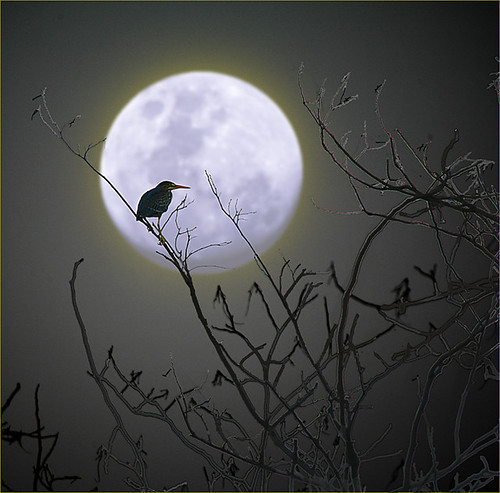My response to a fellow Facebook user and bird enthusiast, on PETA’s 12 steps (honestly I didn’t know them and frankly can’t be bothered, I don’t need a 12-step programme to teach me what is right). I have had to knok this off inbetween 50 million other things so if there are inconsistenies or errors, you think I'm talking plain old rubbish, please point it out. I know I've left out a lot.
Anyway, PETA’s points (as quoted by the mentioned person) in bold, his comments in italics and mine as is:
1 1. Abolish by law all animal research. (There would be no cures for AIDS, cancer, heart disease, etc., and testing of new drugs would be done on humans, or not at all.)
---this is a long answer and I urge you to read up on the many alternative methods and viewpoints. Animal research is unfortunately hit-or-miss at best (thalidomide anyone?) and many more sophisticated means of testing medicines have appeared, not least of which TraumaMan http://www.simulab.com/product/surgery/open/traumaman-system, cell cultures, lab-grown tissue and organs, computer simulations, microdosing...of course I could also point out the fact that many substances have very different effects on humans than they do on other animals. There’s a wealth of literature out there, should you want to read up more I’d be happy to point you in the right direction.
2. Outlaw the use ...of animals for cosmetic and product testing, and classroom demonstration (physicians would perform their first surgeries and procedures on humans without any previous experience).
---again, see my friend TraumaMan above (and computer models, and a myriad of other lovely, interactive and non-icky physical models) for classroom demonstration. Furthermore with over 8000 known safe cosmetic ingredients not to mention the plethora of currently available products, I do not think there is any justification for testing cosmetics on animals. Short of conning people into buying yet another silly anti-aging cream or hair colour, what is the point? Why should animals suffer and die for human vanity?
3. Vegetarian meals should be at all public institutions, including schools.
---what’s the problem there? Surely any child has the right NOT to eat meat should he or she choose not to? Surely only serving animal products can be argued to be infringing on the rights of these children?
4. Eliminate all animal agriculture (resulting in no milk, eggs, chicken, fish, or meat for food, no leather for shoes or clothing). (How many foods do you eat that contain eggs or dairy products, or a derivative of the same? Did you know your keyboard and mouse may have been made with animal products?)
---none. I am vegan and do not use any of the products you mention. I am aware that animal products are ubiquitous but this does not have to be so. The animal agriculture sector is unfortunately also the locus of the worst animal abuses – think battery farming, sow crates, veal crates, dehorning, debeaking, foie gras, downer cows, dumping or alternatively gassing or maceration of day-old male chickens...the list goes on. Even welfarists should be offended at the kind of cruelty routinely perpetrated, not even mentioning specific cases like that of Conklin Dairy Farm. This could be a whole discussion on its own. There are great environmental and nutritious benefits to a vegan diet. If you want to understand my views on food animals, this piece puts it in a far more eloquent way than I can: http://www.peacefulprairie.org/letter.html
5. Eliminate all herbicides, pesticides or other agricultural chemicals. Outlaw predator control.(Farmers would not be able to produce as much food as they do now, driving the cost of living up, and eliminating the export of food to hungry nations. Animals such as coyotes are already a problem in some areas, coming into yards to eat garbage and prey upon outdoor pets.)
---I have no problem with dangerous pesticides (like Aldicarb) and herbicides being eliminated. There are safer alternatives. Distribution issues and politics have a far larger effect on food production and prices than predators and pests. Given that animal agriculture is a current fact of life, I’d far rather support cruelty-free methods like using Anatolian hounds to guard sheep rather than using, say, gintraps or poison. Were there no more animal farming, this would be a non-issue. Pesticides and herbicides are a broader conservation issue – many of our raptors are endangered because of “pest control”. Even our endangered Cape Parrots are killed because they eat from the pecan trees that have replaced their natural yellowwood forests.
6. Transfer enforcement of animal welfare legislation away from the Department of Agriculture. (Animal issues would be controlled by people with little or no experience in customary animal husbandry.
---judging by certain laws like the 28-Hour Law* the USDA doesn’t know too much about animal welfare either.
* whereby a person may not confine animals in a vehicle or vessel for more than 28 consecutive hours without unloading the animals for feeding, water, and rest. 28 hours??? More than a fll day and night. It can even be extended to 36, by written request. Oh and this does not apply to poultry. Neither does the Humane Slaughter Act, which also neglects to protect rabbits and numerous other animals.
7. Eliminate fur ranching and the use of furs.
---and the problem here is? Does anyone here support fur?
8. Prohibit hunting, trapping and fishing.
---once again, I am unable see a problem with that. I realise that I may offend hunters here but I can’t really comprehend the sport in killing animals.
9. End the international trade in wildlife goods.
---I think we all agree with this one.
10. Stop any further breeding of companion animals, including purebred dogs and cats. Spaying and neutering should be subsidized by state and municipal governments until all companion animals are extinct. Abolish commerce in animals for the pet trade. Eliminate pet ownership.
---ok this is a prickly one. Something like 4 million cats and dogs are euthanased in the US annually because humans allow them to breed unchecked and do not look after the young. So clearly there are some problems. I am also most concerned about how many people in the pet trade operate, not least selling wild-caught parrots. However I myself have a number of companion animals; they make me very happy and I provide them with a good home. Some of them are adopted, some (like the mynahs) are invasive species and cannot be returned to the wild here. We have bought a bird from a pet shop. We spotted her when going to buy water bowls and perches. She’s a one-legged yellow-backed lory that was being kept in a hamster cage, away from the other birds. I couldn’t leave her there.
11. End the use of animals in entertainment and sports (resulting in no horse shows, cat or dog shows, animal actors, rodeos, animal movie stars).
---…no elephants being beaten and abused by handlers in circuses, no greyhounds being shot and their ears cut off before they’re dumped, no bullfighting, no “dancing bears”, no dogfighting, no horsefighting (I shit thee not), no fire bulls...no Taiji slaughter...you see where I’m going with this? Dog and cat shows may be innocuous, many other entertainments are not at all. I am happy to elaborate if you like.
12. Prohibit the genetic manipulation of the species (resulting in the elimination of critical medical research relating to Cancer, AIDS and other life threatening diseases, as well as crop production improvements such as the difference between the Holstein and the Angus, and eliminate all pedigreed animals, etc... ).
---this is a somewhat tricky one. I generally am sceptical of GM (whether breeding or actual GM) because I don’t think we have enough knowledge, wisdom or foresight. Killer bees anyone? Not to mention companies like Monsanto who force food dependency by only providing their super duper disease resistant seed on the condition that farmers have to keep buying from them, etc. I am all for studying genetics, just not too convinced about the manipulation of genes for profit. And of course this would not eliminate pedigreed animals – how would it do that? I don’t have any problem with curbing attempts to breed animals to a point where they are not healthy, like pugs who have respiratory issues and chihuahuas whose legs break like chicken bones because they are just too small. And cows are not crops ;)
You may sympathize with one of the points above... however, do you agree with all of them? If you disagree with only some, you cannot, in good conscience, continue to support the animal rights agenda with donations or support of their legislation. For example, I happen to agree with item 9, above, but if I send money to the animal rights groups, it may be used to support items with which I disagree.
---once again Art, PETA are not the custodians of animal rights, neither of my conscience. Animal rights thinking has existed long before PETA. I do not give them money. I base my ideas on simple extension of human rights (the right to life, the right to bodily integrity, non-intervention, conservation etc.) and furthermore I have read some of the ideas of people like Peter Singer, Gary Francione, James LaVeck, and South African thinkers like Michelle Pickover and Dr Les Mitchell. I do support causes like: CLAW www.claw-sa.org , HHCU www.horsecare.org.za , Sharklife www.sharklife.co.za , and numerous others that actually put in the legwork of making animals’ lives better. My family and I have rescued, rehabilitated and released numerous birds and other creatures. I try to educate my own child and other children about the importance of treating animals with compassion and respect.
At the end of the day animal rights is not about an agenda, it is a philosophy that has at its core the best interest of animals, not from a condescending viewpoint of the “crown of Creation” or “top of the food chain”, but from a deeply felt need to understand what is truly the best way to co-exist with creatures that are more similar than different to us. I am unable to understand why anyone would oppose this ideal.





